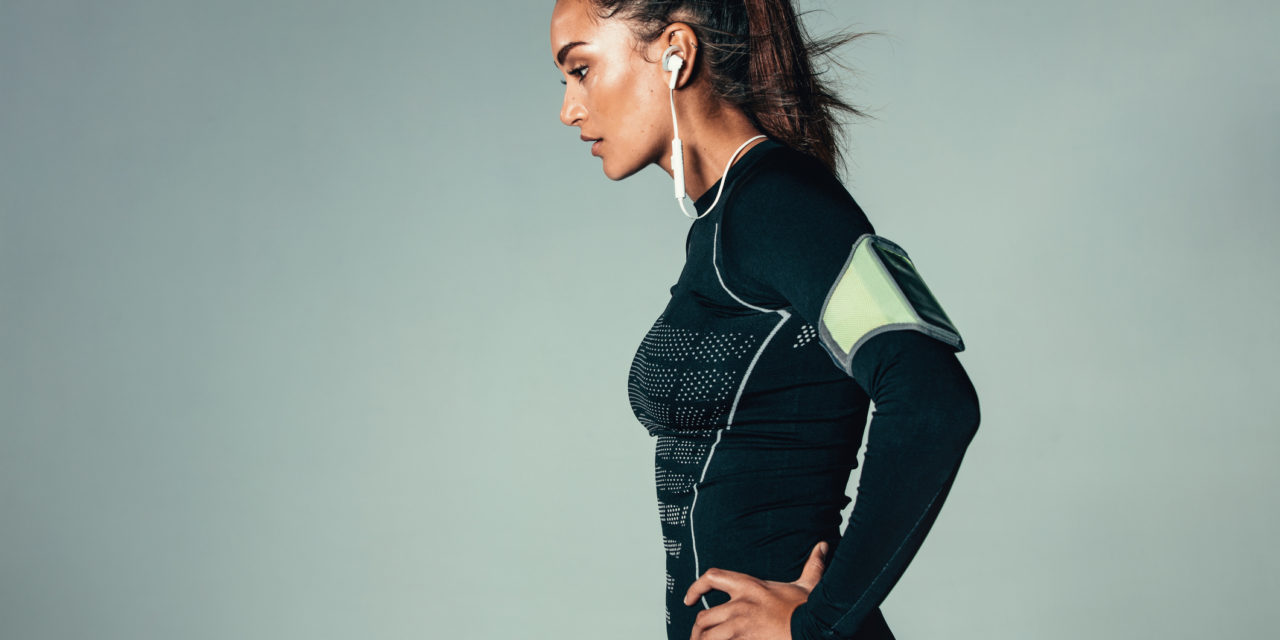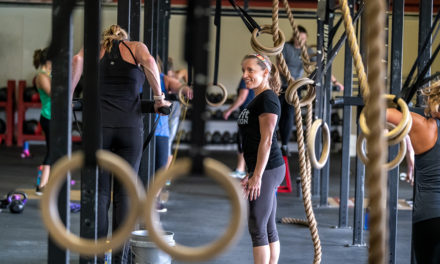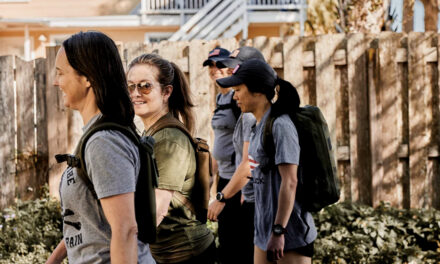Kristin Appelget’s alarm goes off at 4:50 each morning, and even when she’s tempted to stay under the covers, the director of community and regional affairs at Princeton University gets out of bed. “If I don’t get out of bed, seven women get left standing on the dock without a full boat to row,” says Appelget, who was a competitive swimmer, field hockey player, and softball player in high school and on the crew team in college at Notre Dame. Now, she rows with a master’s program affiliated with Princeton National Rowing Association in Mercer County—partly because she loves it and partly because it keeps her on her game both at the office and at home. “All of my experiences playing sports really shaped me—so much so that I can honestly say any success I’ve had I can trace back to skills I picked up and learning opportunities I had thanks to playing sports.”
The research validating Appelget’s experience is clear: Women who participate in sports tend to have higher self-esteem and more positive body image and perceive themselves as psychologically more masculine than their nonathletic peers—all traits that can help women both on the field and in the office. Here’s what Appelget says are some of the biggest ways sports have impacted her career. The best part? Her secrets are ones that all women can use to get ahead at work.
Getting organized is key. When Appelget was at Notre Dame, arguably one of the most rigorous academic institutions in the country, she was forced to learn how to juggle early morning practices, training sessions, classes, homework, and going to football games—and she quickly learned that the only way to successfully do it all was to be hyper-organized. Of course, these skills translate to success in most workplaces. Knowing how to prioritize, delegate, and find things in a flash helps you to be more efficient—and more productive as a result.
There’s no “I” in team. If there’s one thing being on a sports team will teach you, it’s that “collaboration is crucial, whether you’re playing a game or in a work scenario,” says Appelget. “When collective thought and reasoning are factored in, the outcome is always better.”
Helping others shine helps them—and you. As the captain of her swim team in high school, Appelget learned a lot about teamwork—particularly about how important it is to step out of the spotlight and help others have their moment to shine, she says. “That’s the sign of a true leader.”
Goals keep you focused. The hard work and focus that comes with goal-setting is something that stays with most athletes, says Appelget. “This ability to set goals for yourself and collective goals for the team is something that translates to any job,” she says. “I noticed that ever since I started rowing again as an adult, and there are regattas we focus much of our training around, I notice myself setting more goals at work—both for myself and for the team. Being able to know where you want to go and doing that from an athletic standpoint means it naturally becomes part of what you do in your work environment.”
Obstacles don’t seem so daunting. Sure, you could throw your hands in the air or complain about a seemingly insurmountable task. Or, you could chip away at that big project and try your best. Sports help you do the latter, says Appelget. “Playing sports often requires a leap of faith, whether you’re a young girl or grown woman getting your start,” she says. “Getting out there and trying makes you a success on some level—and that’s a lesson that’ll serve you in all aspects of your life.”






